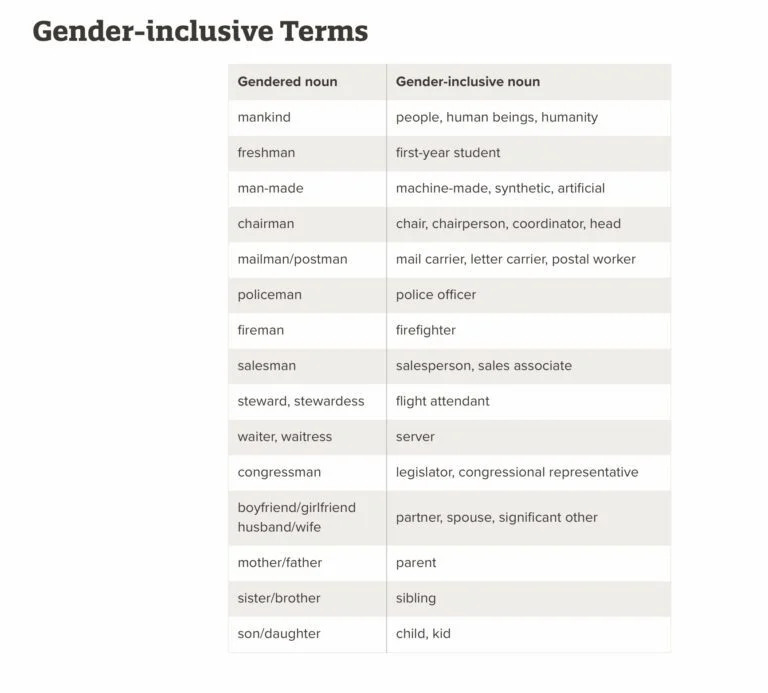Springfield College has implemented pronoun guidelines to promote gender inclusivity and respect for diverse gender identities within its campus community. This blog article explores the importance of these guidelines and the ongoing discourse surrounding gender-specific language.
Springfield College, a Massachusetts-based institution, has recently introduced pronoun guidelines as part of its commitment to fostering an inclusive environment for its diverse student population. These guidelines aim to direct students towards using language that avoids gender-specific terms, such as "mother" and "father." By embracing this approach, the college seeks to promote gender inclusivity and respect for individuals with varying gender identities. In this blog article, we will delve into the details of Springfield College's pronoun guidelines, examine the rationale behind them, and discuss the ongoing debate surrounding the use of gender-specific language.
Springfield College's Pronoun Guidelines: Fostering Gender Inclusivity
Understanding Gender Identity and Expression
At the core of Springfield College's pronoun guidelines lies a commitment to valuing and validating the gender identity and expression of all members of the campus community. Gender identity refers to an individual's internal sense of gender, regardless of the sex assigned to them at birth or the sex designation on their legal documents. By recognizing the significance of gender identity, the college aims to create a safe and inclusive academic, living, and work environment.

Encouraging Pronoun Indication and Respect
To manifest gender inclusivity in everyday interactions, Springfield College encourages its students, faculty, and staff to indicate the pronouns they use for themselves in various settings such as classes, residence halls, and workplaces. By respecting individuals' chosen pronouns, the college fosters an atmosphere of acceptance and support. The guidelines emphasize the importance of using the correct pronouns, as misgendering someone can be disrespectful and hurtful. However, if an individual chooses not to disclose their pronouns, using their name alone is considered appropriate.

Avoiding Gendered Language
Springfield College's pronoun guidelines provide a list of gendered nouns that should be avoided in order to promote gender inclusivity. Some examples include "mother/father," "sister/brother," "mankind," "man-made," and "boyfriend/girlfriend." By consciously eliminating these terms, the college seeks to create a language environment that is inclusive and respectful towards all gender identities. However, it is important to note that these guidelines aim to expand linguistic awareness rather than restrict personal expression.
Conclusions:
Springfield College's pronoun guidelines are a reflection of its dedication to fostering a culture of acceptance and inclusivity. By encouraging the use of preferred pronouns and discouraging gendered language, the college aims to create an environment where all members of the campus community feel respected and validated in their gender identities. While these guidelines have received both support and criticism, they contribute to the ongoing discourse surrounding gender-specific language and its impact on societal norms.
As society evolves, it is crucial to engage in open and respectful conversations about gender identity and expression. Springfield College's pronoun guidelines serve as a catalyst for such discussions, urging us to question and redefine traditional language norms. By embracing gender inclusivity and actively working towards creating a more inclusive society, we can cultivate an environment where everyone feels valued and accepted for who they truly are.
Is this content hitting the mark for you? If so, consider supporting my work—buy me a virtual coffee! ☕ Your support keeps the ideas flowing. Thanks so much! 🙏 Please Contribute via GoGetFunding

